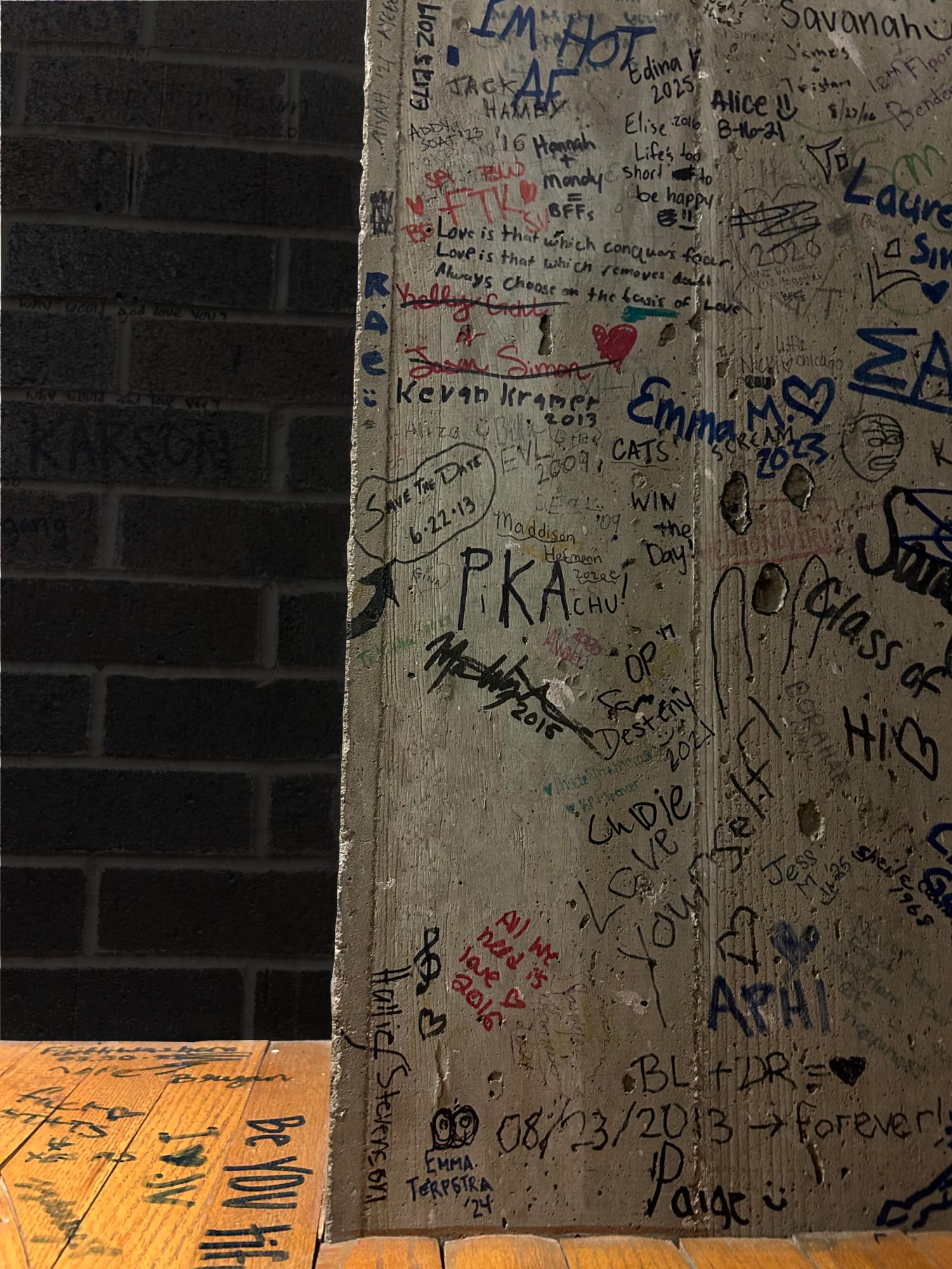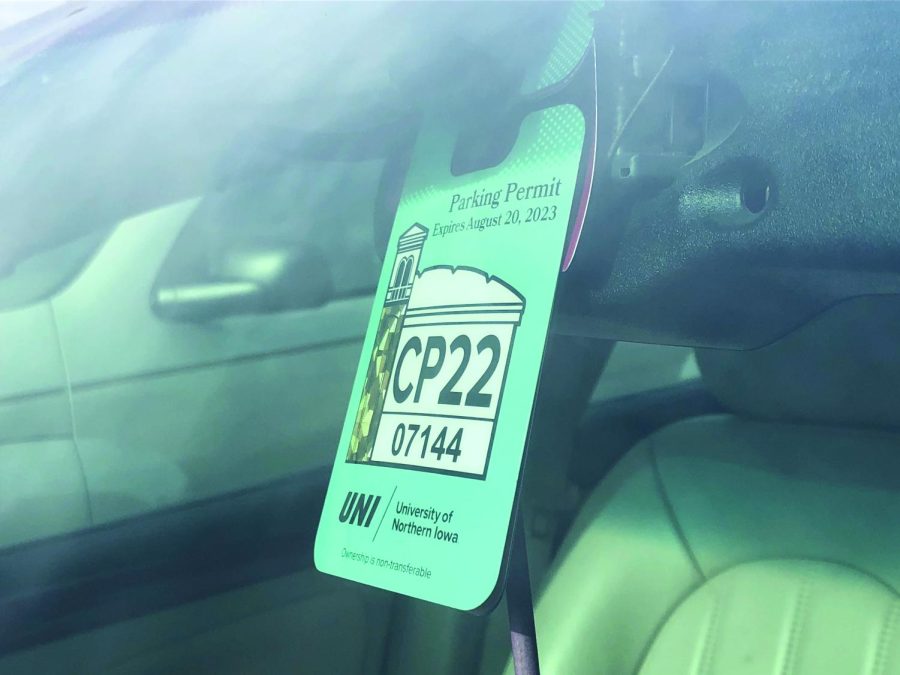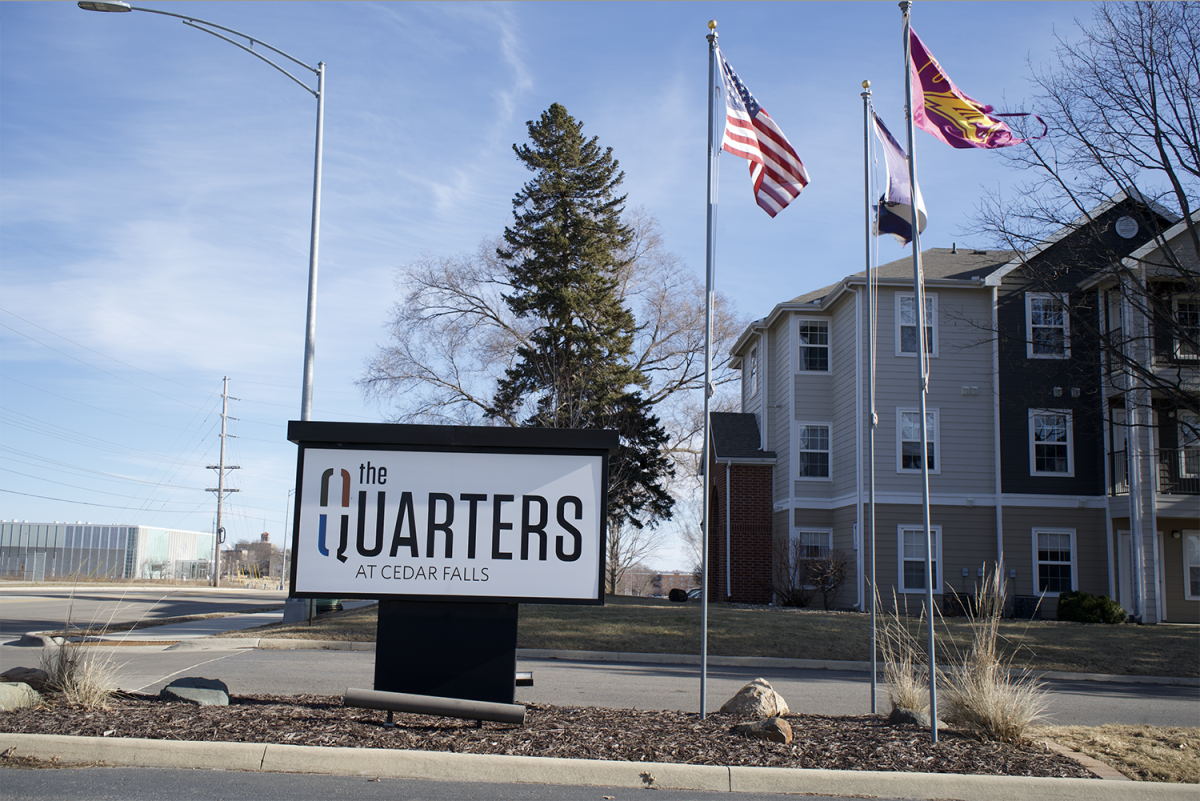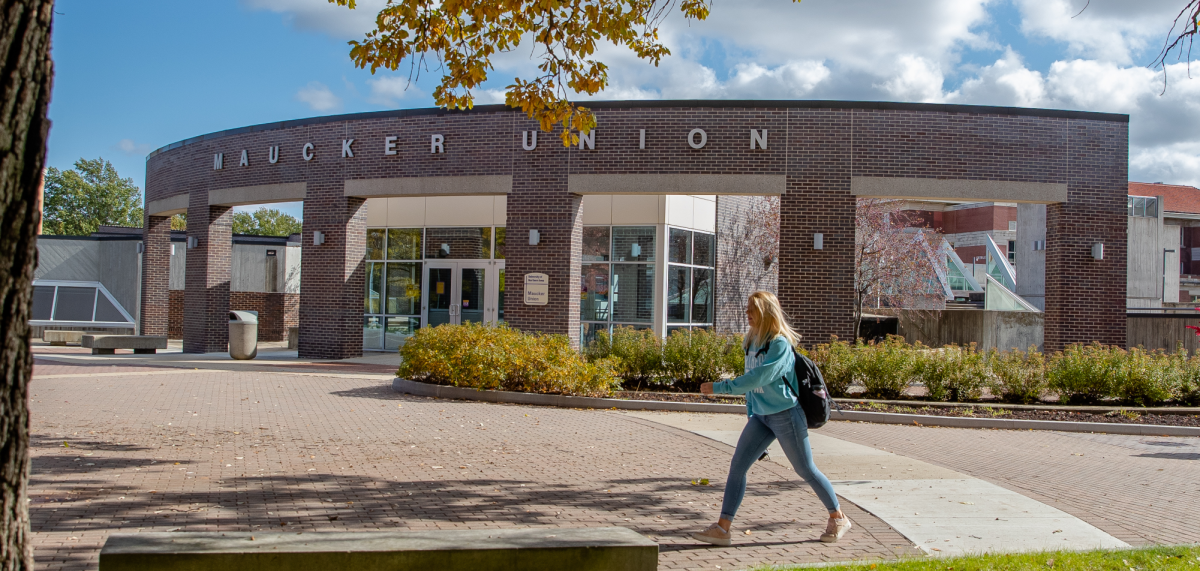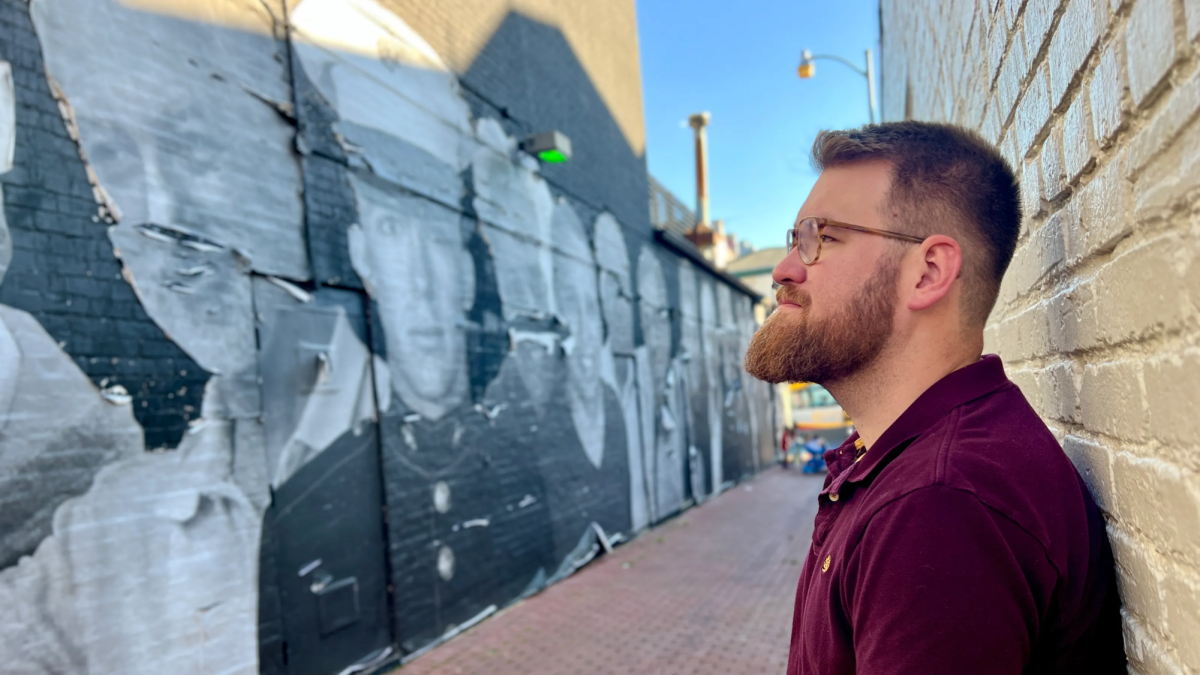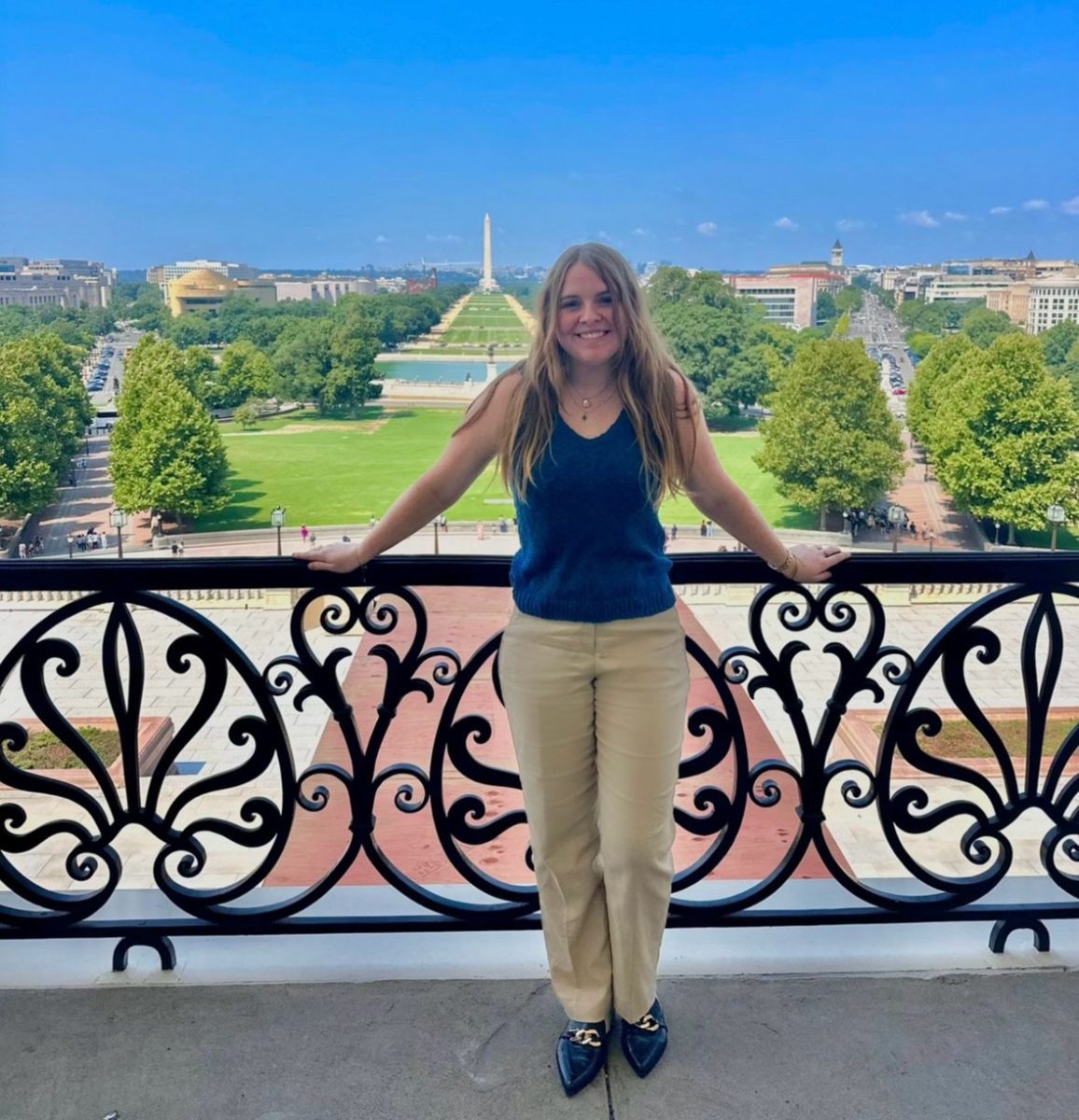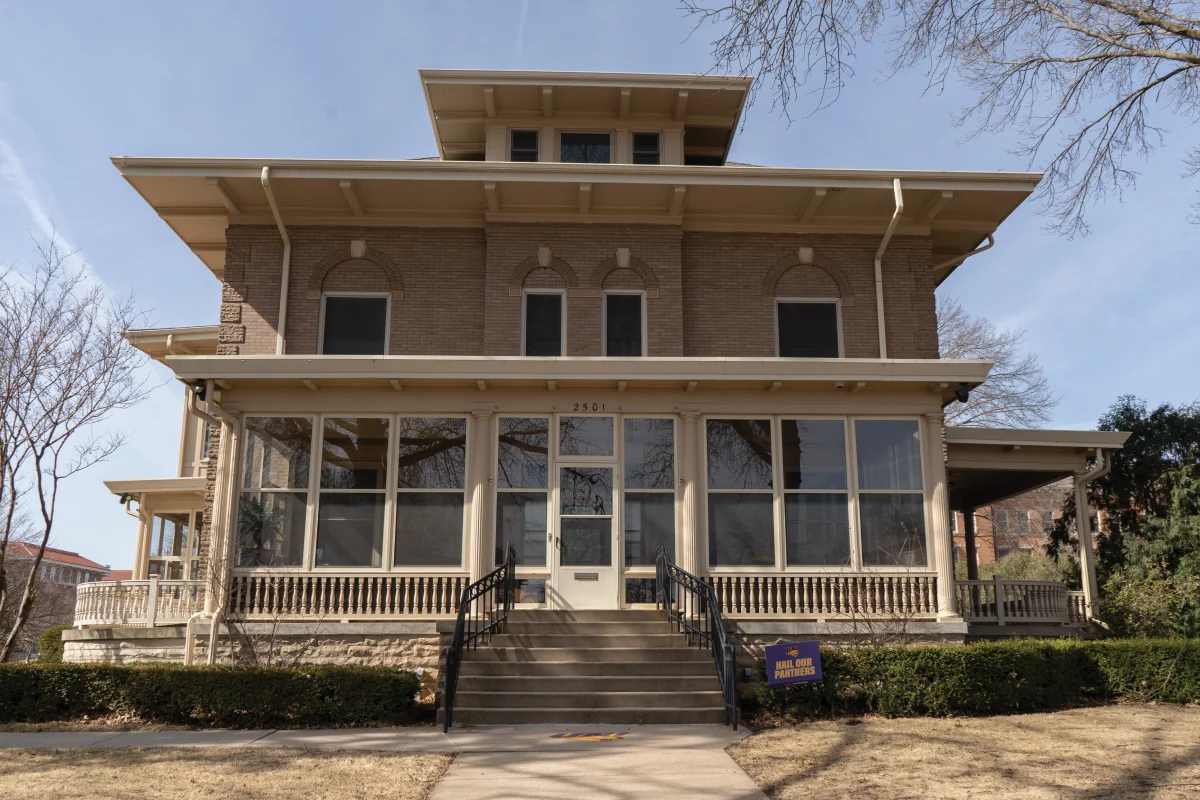Editor’s note: This article discusses violence against the LGBTQ+ community.
Tucked away in a quiet corner of Maucker Union sits a hidden message board. In an alcove, a wooden bench and a nearby concrete pillar and brick wall have been decorated with over a decade of small graffiti messages. Sharpie markers have left notes like “Life’s too short, be happy,” “The world is YOURS,” “Class of ’14” and countless signatures from past and present students.
A few weeks ago, sophomore student Sam, whose name has been changed for anonymity, added their own message to the bench. They wrote “Trans rights” in capital letters using a marker on the wooden back of the bench, intending to leave a positive message.
Just over a week ago, thanks to a photo posted on the anonymous social media platform Yik Yak, Sam saw that someone had defaced their message. Lines were scratched into the wood bench, crossing out the message. Directly below it, the perpetrator engraved a homophobic slur with the abbreviation “KYS,” meaning “kill yourself.”
For Sam, the incident is just part of life. As a member of the LGBTQ+ community from a conservative area, they’ve grown fairly accustomed to anti-LGBTQ+ sentiments over time.
“It isn’t exactly an uplifting message, but it is what it is,” they said. “Unfortunately, you sort of get used to it after a while.”
However, Sam still feels the fear of not knowing who scratched the slur into the bench.
“You don’t know who it could be. It could be the person you’re sitting next to in class and you don’t even realize it … You can’t know and, to a certain extent, that leads to a certain sense of paranoia,” they said.
Other students have reported experiencing similar more subtle messages of hate. Junior Blue, whose name has also been changed for anonymity, recalls how his freshman year, he had several LGBTQ+ pride themed items stolen from the bulletin board on the outside of his room in Noehren Hall. Students are encouraged to decorate the boards on their doors as a way to express themselves and get to know the fellow students in their hall.
The first item stolen was a canvas Blue had painted rainbow colors on and placed on the outside of his door.
“I was pretty sad about it, because I didn’t think that it would happen,” he said. “I felt pretty safe, but after it happened, I felt more unsafe. And I was like, “Oh, so there’s people on this floor who don’t agree with me and who I am, enough to steal it off someone’s door so deliberately… I was very uncomfortable.”
Blue said that he reported the incident to his RA, who notified the Residence Life Coordinator (RLC) of the building. Both the RA and RCL came to his door to talk about available resources, and an email was sent to his floor asking people to not steal from people’s door boards.
A few weeks later, Blue redecorated his door, this time with various LGBTQ+ pride flags that he made out of felt. Once again, shortly after he put them up, the flags were stolen from the door. Blue noted that none of his other art or decorations were taken, only the items that were queer themed.
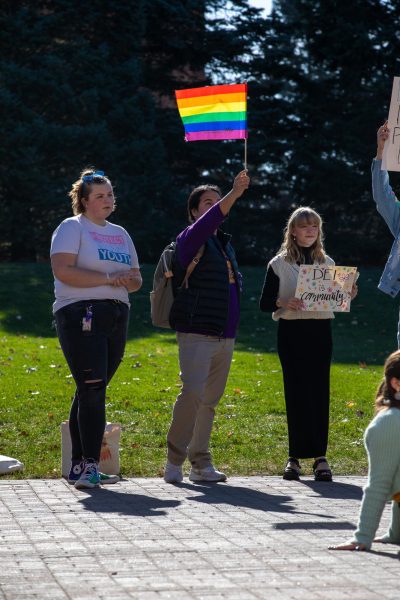
He again reported the incident to his RA and the RLC, who took a similar plan of action as the first time: having a conversation about available resources and sending another email to the floor.
After the two incidents, Blue stopped putting anything LGBTQ+ related on his door, and the thefts stopped. However, he said he wasn’t alone on the floor. Another friend of his had a sign that said “Queer” taken from their door as well.
According to the FBI’s Crime Data Explorer, from 2021-2022, hate crimes based on sexual orientation increased nationwide from 1,711 to 1,947, a 13.8% jump. The number of gender identity-based hate crimes increased from 353 to 469, a 32.9% jump.
The advocacy group One Iowa Action identifies 29 anti-LGBTQ+ bills that were introduced in the Iowa legislature in 2023, all bills that, according to their website, either directly target LGBTQ+ Iowans, will primarily affect LGBTQ+ Iowans or were created as a response to misinformation about LGBTQ+ Iowans. Those bills include SSB 1197/HSB 214, which bans all gender affirming care for minors, and SF 496, which prohibits instruction related to gender identity and sexual orientation in schools K-6 grade.
The Iowa House also passed HF 2558 on Feb. 29. This bill includes the removal of unnecessary Diversity, Equity and Inclusion (DEI) offices from public universities in Iowa. Gender and sexuality services fall under DEI.
Sam believes that the recent anti-LGBTQ+ legislation in the state has a significant impact on the way students are treated at UNI and beyond.
“I definitely feel it encourages acts like this. It definitely feeds the fire because people see, oh, if x law gets passed, then I don’t have to worry about the consequences … It sends a message not just to here, but the whole state of Iowa, that you don’t have to be afraid to say all these absolutely cruel and heinous things to people,” they said.
“The Iowa legislators who are pushing the elimination of diversity, equity and inclusion, I do blame them in part responsible for this,” Sam said, “Whether they’re intentionally and maliciously pushing it, or if they’re just following partisan lines, I do hold them responsible to an extent for perpetuating a culture like this and in either encouraging it or be being indifferent to it.”
Blue echoed their statements.
“People are talking about it more, so you get to hear good and bad … And then you actually see just how many people are super bigoted. I think that it is bringing out more people to talk about it in a bad way, just because they’re more inclined to if it’s in the news,” he said.
“It’s just really tiring, and I just can’t get into it anymore because everybody’s arguing, and it just drains me,” Blue said.
According to the 2023 Annual Security and Fire Safety Report published by UNI Public Safety, there was one hate crime reported in 2022 — an on campus residential larceny characterized by gender identity.
UNI Chief of Police Helen Haire noted that the definitions of hate crimes differ based on state or federal standards. The Annual Security and Fire Safety Report is published following Clery Act guidelines, which use federal standards. The federal categories of bias are gender, race, religion, ethnicity, gender identity, national origin, sexual orientation and disability.
Section 729A.2 of the Iowa Code lists slightly different categories of bias: “the person’s race, color, religion, ancestry, national origin, political affiliation, sex, sexual orientation, age, or disability,” or the person’s association with another person of those qualities.
Gender identity is not included as a bias that can be the basis for a hate crime in the Iowa Code.
There are also certain specifications for what type of crime can be considered a hate crime. The Iowa Code defines the crimes as assault, arson or use of explosive devices, criminal mischief and trespassing. The federal standard includes the following: murder/non-negligent manslaughter, negligent manslaughter, sex offenses, robbery, aggravated assault, burglary, motor vehicle theft, arson, larceny, vandalism, intimidation and simple assault.
Haire said that these differences can sometimes vary the classification and definition of hate crimes.
“In order for a hate crime to exist, there has to be a crime,” Haire said. “It can be a lot of things. It can be rude. It can be insensitive. It can be obnoxious. It can be hurtful. It can be all of those things, but that doesn’t make it a crime.”
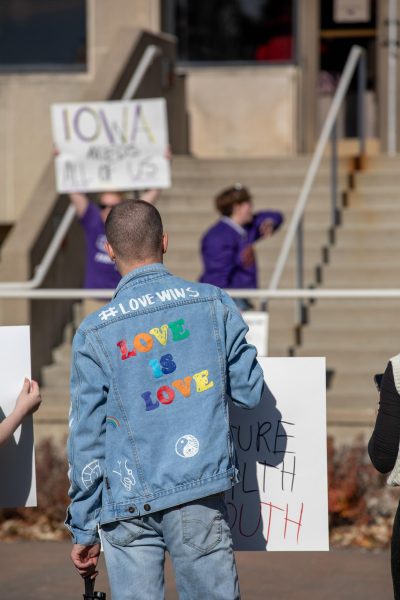
“There’s a lot of gray in this and that’s why when we get these things reported, we will do our best investigating the incident, but sometimes you just don’t know. Was it somebody who was just truly hateful, or was it somebody just being a jerk?” she said.
Haire encourages students who experience anything they may consider a hate crime to report it to residence life staff if they live on campus, or to report it directly to UNIPD. She said that the slur carved into the Maucker Union bench was not reported to UNIPD.
While navigating the current political climate, students have found spaces of safety and support on campus.
“There are definitely certain clubs where I can walk in and I can know I’m safe,” Sam said. “The best way I can describe it is like having little spots in the pool where you can touch the ground and catch a break, but you have to find those through trial and error.”
One of those groups many students have found comfort in is UNI Proud, a social and LGBTQ+ activism student organization.
“UNI Proud has created such a sense of love and family for me,” said UNI Proud’s director of public relations, Allie Clark. “Seeing familiar faces involved in everything we do, from Dragaganza to our general body meetings, makes me feel like much more than a number here at UNI,” they said.
Clark recommended that students facing uncomfortable positions due to their sexual orientation or gender identity take action.
“If you feel uncomfortable, and have the ability to, speak up. Advocate for yourself if it is safe for you to do so. You know yourself best,” they said.
Blue added, “(The university does) little things, like they put condoms in the bathrooms, and that’s sex positive and really good … More smaller scale stuff like that is kind of nice and showing they care at least somewhat. And I think that a lot of professors also care about that sort of thing.”
For Sam, the biggest area of improvement they’d like to see is greater emphasis on the facts behind gender identity and sexual orientation.
“There are absolutely studies showing the effects of LGBT isolation, and I feel so often we focus on respecting the individual for their choices and how they feel they are, which is a message I completely get behind. I have no problem with that,” they said. “But I feel like there needs to be a balance of also pointing out there are hard facts to all of this. That being queer is not a choice by every scientific standard. It is not a choice, and I think driving home the more factual side of things is something that is very, very important.”
Clark added, “I encourage both the University and the student body to remember that our community will always be here. We aren’t going anywhere. We are proud to be ourselves and nobody can take that away from us.”
Students seeking further information or support can contact UNI Gender and Sexuality Services on the Plaza level of Maucker Union, at [email protected] or 319-273-5428. Other LGBTQ+ services on campus and in the community can be found here.

